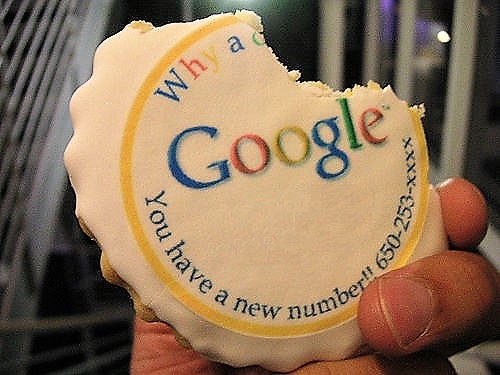
Docket numbers: 12-md-2358 (D. Del.); 17-1480 (3rd Cir.)
The Center for Class Action Fairness (CCAF) is challenging the legality of a class action settlement with Google that provides millions of dollars to the attorneys, and zero dollars to the class. Class members, who waive all rights to damages under the settlement, receive the same benefit whether or not they opt out.
On August 6, 2019, the Court of Appeals for the Third Circuit agreed with CCAF in part and vacated approval of the settlement:
The vista view of this case is not pretty. According to the complaint, an internet behemoth with unprecedented tools for monitoring private conduct told millions of Americans it would not track their personal browser history, and then it did so anyway to profit from the data. Through the proposed class-action settlement, the purported wrongdoer promises to pay a couple million dollars to class counsel and make a cy pres contribution to organizations it was already donating to otherwise (at least one of which has an affiliation with class counsel). By seeking certification under Rule 23(b)(2), the defendant and class counsel avoid the additional safeguards that apply to Rule 23(b)(3) actions. One might think this would leave room for class members to pursue damages individually; yet that relief is foreclosed as well, as the settlement contains a nationwide release of claims for money damages that arose or could arise were there unauthorized snooping, presumably covering tens if not hundreds of millions of Americans. In this context, we believe the District Court’s factfinding and legal analysis were insufficient for us to review its order certifying the class and approving the fairness, reasonableness, and adequacy of the settlement. We thus vacate and remand for further proceedings in accord with this opinion.
The Third Circuit was “troubled” by the selection of cy pres recipients “due to pre-existing associations between them and class counsel or Google.” Going forward, settlements in the Third Circuit “should not be approved if such a prior affiliation ‘would raise substantial questions . . . whether the selection of the recipient was made on the merits.’”
In the original class action case, plaintiffs sued Google for alleged federal privacy violations over Google’s circumvention of Safari browser users’ privacy settings, but class counsel negotiated a settlement that provided $0 to class members and $5.5 million to be divided between class counsel and third-party charities. One of those charities is a non-profit for which co-lead counsel serves as chairman of the board, and several others are charities to which Google routinely donates, bringing into question the benefit to the class.
The Center for Class Action Fairness objected to the settlement, but was overruled by U.S. District Court for the District of Delaware on February 2, 2017. CCAF director and class member in this case, Ted Frank, filed a notice of appeal on March 1, 2017. CCAF is challenging the final approval of the class action settlement in the U.S. Court of Appeals for the Third Circuit.
In July 2017, 13 state attorneys general filed an amicus brief in support of CCAF’s objection. The state attorneys general agree with CCAF that the feasibility of distributing funds depends on whether it’s impossible to distribute funds to some class members, not whether it’s possible to distribute to all class members. According to CCAF director and senior attorney Ted Frank, this is an important distinction that helps prevent nearly every class-action settlement from turning into an abusive cy-pres-only settlement, which harms class members.
After requesting supplemental briefing on jurisdiction in light of another CCAF case, Frank v. Gaos, the Third Circuit vacated approval of the settlement on August 6, 2019, as urged by CCAF and the amicus briefs.
On remand, the settling parties attempted to resubmit the same settlement the Third Circuit rejected. This time, the parties sought to certify the class as under Rule 23(b)(3) instead of Rule 23(b)(2). Again, Frank renewed his objection noting the existing settlement was unchanged and that the settlement was even more problematic under a (b)(3) analysis.
On July 10, 2023, the Honorable Judge Eduardo Robreno of the District Court of Delaware agreed in part with Frank’s objection. The Court rejected the settlement finding the class was not “ascertainable” under Rule 23(b)(3). Plaintiffs initially sought to appeal this determination but withdrew their appeal when the Third Circuit questioned their jurisdiction to do so. Back in the district court, plaintiffs now seek certification for an interlocutory appeal from the court. On October 18, Frank filed his opposition to that request.
On July 18, 2024, the court denied plaintiffs’ request for an interlocutory appeal. On July 26, Plaintiffs petitioned the Third Circuit for an appeal.
This case was formerly a project of the Competitive Enterprise Institute and now is being actively litigated by the Hamilton Lincoln Law Institute.
Case Documents
| Description | |
| Jul 18, 2024 | ORDER Denying Interlocutory Appeal Under Sec. 1292(b) |
| Oct 18, 2023 | MOTION of Theodore H. Frank in Opposition of Certification for Appeal |
| Jul 10, 2023 | OPINION Denying Settlement |
| Jul 06, 2022 | SECOND OBJECTION of Theodore H. Frank to Settlement Approval, Class Certification, and Request for Attorneys’ Fees |
| Aug 06, 2019 | OPINION of the Third Circuit |
| Nov 22, 2017 | BRIEF of Amicus Curiae of EPIC |
| Nov 29, 2018 | REPLY BRIEF of Appellant Theodore H. Frank |
| Jul 10, 2017 | BRIEF of Amici Curiae of Thirteen State Attorneys General in Support of Objector (Amended) |
| Jun 28, 2017 | OPENING BRIEF of Appellant Theodore H. Frank |
| Feb 02, 2017 | MEMORANDUM and ORDER of U.S. District Court for the District of Delaware |
| Dec 20, 2016 | OBJECTION of Theodore H. Frank |
